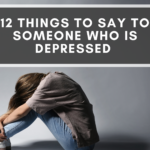- What Is Postpartum Depression?
Depression has many varieties and it can affect people at any time and at any age. In the same way, postpartum depression (PPD) is also a very common issue, popping up among recent newbie moms. According to many reports, apart from PPD there is another mental disorder that can trigger the mothers, that is Baby Blues. People tend to mess up baby blues and PPD altogether. However being a similar nature mental disorder, the treatment of these two are completely different. Having depression counseling in Gujrat can serve you a visible betterment if you’re suffering from PPD.
Just after a few days of your delivery, you might feel extremely hopeless and sad. A feeling of a shuttered and having no aim in life can attack you badly. Rather than enjoying motherhood, you’ll start to hate spending time with your baby. If you keep it untreated, things can get worse. Moreover, your bond with your own baby will never be created, which is not only painful but also harmful for your baby.
- What Is The Key Difference Between Baby Blues And PPD?
In simple words, postpartum depression is way more severe than baby blues. Both might appear right after you give birth. Following some natural and self-control tips you can easily overcome baby blues but PPD never does easily go away without psychotherapies. The thing is that getting counseling is very important on time. Depression counseling in Gujrat has the best treatment options, just go for that.
In such cases, you need full support from your husband. It makes the journey loving and much relieving. Not only due to the complicated delivery but also due to unpredictable changes in estrogen and progesterone can cause PPD in the mothers. Sometimes if the symptoms of baby blues stay the same, then it might also cause PPD. Although, the reason for most mental disorders is hormonal imbalances, other hormones that our thyroid gland produces can also cause PPD or baby blues.
- What Are The Symptoms Of PPD
If you’re a newbie mom, then knowing the symptoms is very important. Some commons are mentioned below,
- Losing interest in the baby, husband, family and friends
- No interest in sex.
- Staying sad and depressed all day long.
- Loss of appetite or overeating.
- Feeling hopeless, and an uncontrolled nature of crying.
- Mood swings like getting sad, angry, and irritated simultaneously.
- A fear of not becoming a good mother.
- Scary thoughts of harming yourself or harming your own baby on your own.
- Unable to sleep or oversleeping. Sometimes insomnia might also occur.
- Feeling yourself left out with your baby from the entire family and society.
Things You Can Do To Control Postpartum Depression
Professionals generally say that postpartum depression or PPD does not go away on its own but that doesn’t mean you’ll try to do nothing about it. Here we’re going to mention a few things for natural remedies along with your therapist, just check them out.
- Try to join a group of newbie mothers. It will help you to deal with the condition easily. You can take the suggestion of such groups from your therapist as well.
- Talk with people. PPD mostly comes when you don’t have a good social life.
- Have good sleep and eat healthily. If you’re unable to sleep on time, then share this with your therapist as well.
- Keep yourself busy with whatever you love to do. You can do something exciting as well, but before that hire someone to take care of your baby.
- Try to understand your baby. An emotional connection is very important for fast recovery.
- If things get worse, then consider visiting the best therapist.
Postpartum depression can be more depressive if you don’t have a healthy bond with your husband. When you both deal with a situation, getting the cure will be a happy journey for you both. Aside from this do not get upset if you’re not enjoying your motherhood like others do. Just talk to your doctor who did the delivery, she/he will be able to give you the best suggestion. Just follow them and become the happiest mother forever after.




